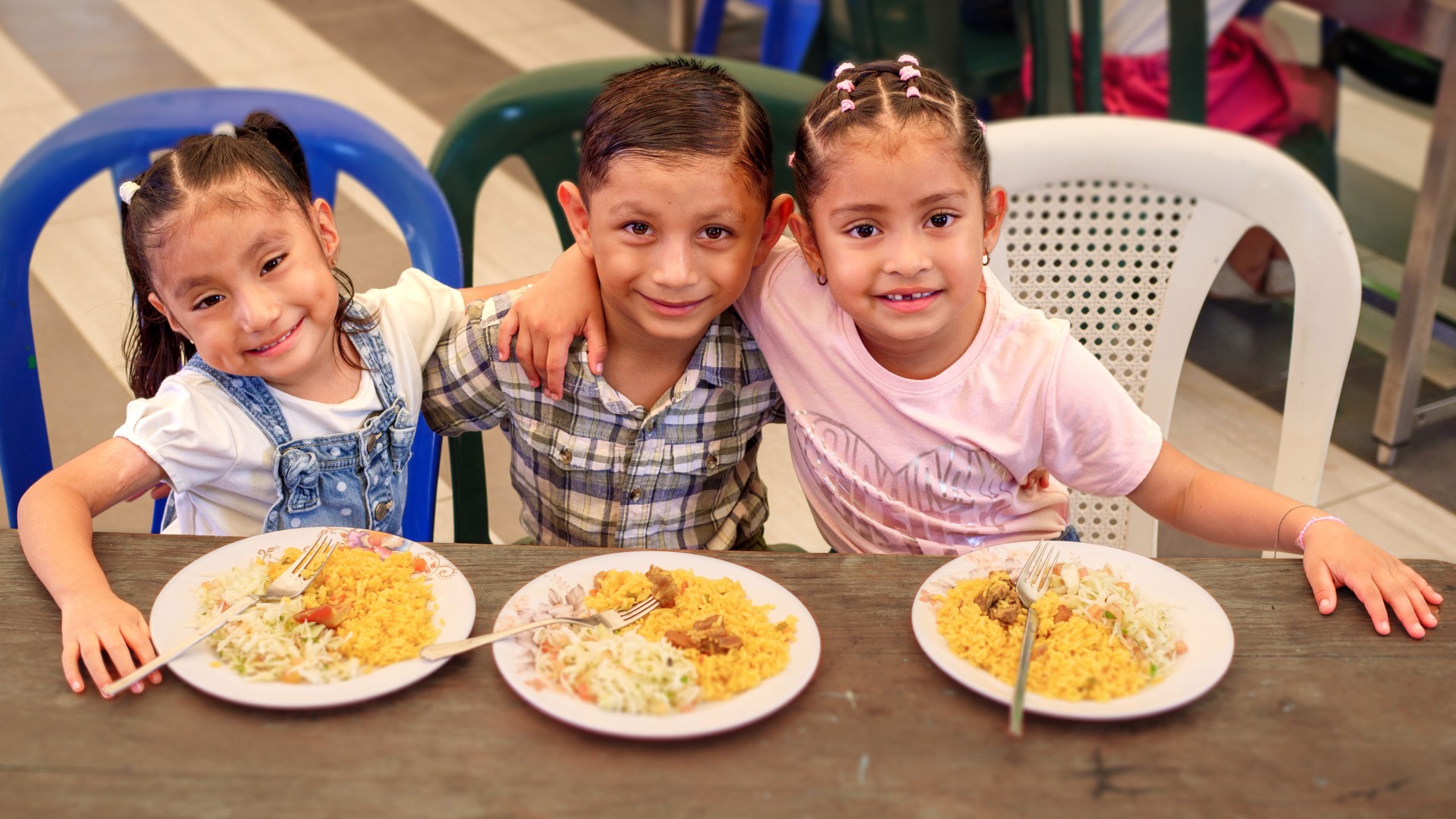Donate now to Food For The Poor’s match campaign and support their holistic, transformational approach to poverty reduction.
Is it enough to provide for someone physically if their emotional and spiritual needs remain unmet?
This is a question that drives the work of Food For The Poor (FFTP), a Christian nonprofit operating in Latin America and the Caribbean that offers a holistic approach to poverty alleviation. As they believe every person is worth caring for and every soul is worth saving, FFTP seeks to nourish hope, dignity, and faith in the lives of the less fortunate.
"If all we're doing is feeding people and not telling them about Jesus, then what are we doing?" FFTP founder Ferdinand Mahfood asked. These words are still a guiding light for the organization. Beyond feeding the hungry and sheltering the homeless, FFTP's mission extends to sharing the message of salvation and fostering profound transformation.
What Transformation Truly Looks Like
In every area of their work, FFTP seeks to address the multidimensional facets of poverty. Poverty is not solely a lack of material resources; it encompasses vulnerability, powerlessness, isolation, physical suffering, and distorted worldviews. FFTP acknowledges this complexity by empowering the poor with tools, resources, and knowledge. These integrative approaches ultimately lead to sustainable development. In their fight against malnutrition, for example, they combine short-term food aid with nutrition education, agricultural inputs, training, and access to water, ensuring that food security extends from the present to the future.
FFTP doesn't stop at addressing material needs. They also delve into the intangible aspects of poverty, such as self-worth, dignity, identity, and self-reliance. True development, as they see it, encompasses spiritual, social, and psychological considerations. And above all else, spiritual transformation is the cornerstone, leading to broader personal, economic, and social change.
In a paradigm shift for poverty work, FFTP has intentionally moved from merely building things to building lives. They understand that distorted worldviews can be more crippling than material limitations, and they know that to truly flourish, individuals must break free from the psychological shackles of poverty. In this way, FFTP adopts a participatory approach, working alongside the poor to shift toward more holistic, relationship-based models that prioritize mindset change and overall well-being.
A Transformation Case Study
Drawing inspiration from biblical principles of empowerment and self-sufficiency (2 Thess. 3:10–12), FFTP aims to enhance the capacity of those they help, teaching them to make choices and take control of their lives.
FFTP's economic empowerment projects are shining examples of this approach. They engage in initiatives like coffee farming, beekeeping, and bean cultivation. And the impact is profound, as participants transition from surviving to thriving. In Marcala, Honduras, coffee production increased by over 70 percent thanks to FFTP's support. The cooperative also registered trademarks for their products, resulting in increased revenue from coffee and honey sales.
These projects not only boost production and income but also lead to higher savings, improved living conditions, and a heightened sense of self-reliance among the beneficiaries. More than providing resources, these programs help individuals and communities shape their futures.
Facilitating access to proper inputs, providing technical and business training, and promoting community empowerment are all part of the equation. In some projects, reforestation initiatives ensure environmental sustainability. Working with cooperatives not only helps farmers access better markets but also provides networking opportunities and support for marketing and commercialization.
FFTP’s evaluation results speak to the efficacy of their initiatives. Bean production and the coffee and honey projects saw a significant increase in production yields and income. Households are reporting greater stability and optimism, and that’s because it's not just about economic progress–it's about holistic well-being.
Be the Transformation
This holistic approach embodies a commitment to transforming lives, recognizing that poverty is a complex web of challenges that demands multifaceted solutions. Through their integrated efforts, FFTP is alleviating poverty and restoring faith in the hearts of those they serve.
Colossians 1:15–20 reminds us how in Christ, all things hold together. In the same way, FFTP’s holistic approach fosters peace, hope, and transformation in communities, strengthening the fabric of lives affected by poverty.
November 28 is Giving Tuesday, a global movement where we each have the opportunity to transform our communities—and our world—through the power of generosity. If you’re interested in supporting the work of Food For The Poor, helping transform and empower those living in poverty, donate today.
Together, we can make a difference and be the agents of change that this world so desperately needs.
Posted


